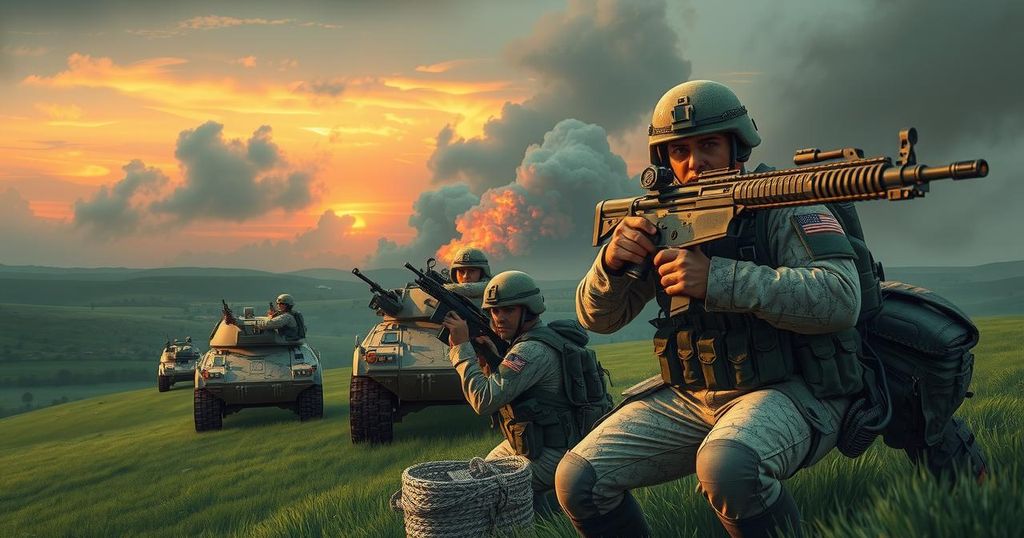The Congolese army halted M23 rebel advances at Walikale-Centre, pushing them back to Mpofi. With military reinforcements, calm returned, although the area remains militarized as civilians flee. EAC and SADC ministers adopted a roadmap for conflict resolution that includes dialogue and a joint verification mechanism, while Rwanda’s involvement remains unaddressed in official communications despite numerous reports.
Tensions in Walikale-Centre, Democratic Republic of Congo, escalated due to the advances of the M23 rebels, but military intervention successfully halted their progression. On March 17, the Congolese army, in collaboration with their Wazalendo allies, pushed the M23 and the Alliance Fleuve Congo back to Mpofi, which is located 52 kilometers from Walikale-Centre.
The military reinforcement from Bunia in Ituri province was vital in stopping the rebels, who nearly captured the town of Mutakato. Although calm was restored on March 18, the area remains heavily militarized, with few civilians visible in the streets. Many residents have relocated to nearby villages along the national highway towards Kisangani, including Losso, Mungele, Tingitingi, Lubutu Mubi, Ndjingala, Lobu, and Makana, which are situated at the border between North Kivu and Maniema.
In a related development, East African Community (EAC) and Southern African Development Community (SADC) ministers convened in Harare, Zimbabwe, on March 17 to adopt a roadmap aimed at resolving the conflict in Eastern DR Congo. Notably, the meeting did not mention Rwanda’s alleged support for the M23 group, despite widespread acknowledgment of Rwanda’s involvement.
The adopted roadmap outlines both immediate and long-term measures to address the ongoing tensions, including initiating direct dialogue at the military level for an unconditional ceasefire and the cessation of hostilities. Moreover, it promotes open access for humanitarian organizations and the opening of Goma and Kavumu airports to facilitate evacuation efforts.
Additionally, a joint SADC-EAC verification mechanism will be established to oversee the ceasefire process, complemented by a technical evaluation team comprising 12 to 16 experts tasked with assessing the security and humanitarian conditions in North Kivu and South Kivu provinces. This team aims to evaluate critical infrastructures and the humanitarian situation in the affected areas.
Despite the communique avoiding reference to Rwanda’s support for the M23, UN reports indicate that the Rwandan army has been actively assisting the rebels in their territorial ambitions in North Kivu. This scenario underscores the prolonged unrest in Eastern DR Congo, attributed to historical conflicts and complex regional relationships exacerbated since the Rwandan genocide in 1994.
Concurrently, the Congolese army’s defense against the M23 represents both a tactical success and a backdrop to the complexities of the humanitarian and security crises in the region, highlighting the urgent need for international attention and resolution strategies.
In summary, the Congolese army, supported by Wazalendo allies, successfully repelled M23 rebels from Walikale-Centre, emphasizing ongoing tensions in Eastern DR Congo. The recent EAC and SADC meetings have led to the adoption of a comprehensive roadmap aimed at peace and stability in the region, albeit without directly addressing Rwanda’s alleged involvement. The situation remains critical as local populations continue to suffer amid the unrest, underscoring the need for effective humanitarian responses and international cooperation.
Original Source: humanglemedia.com




